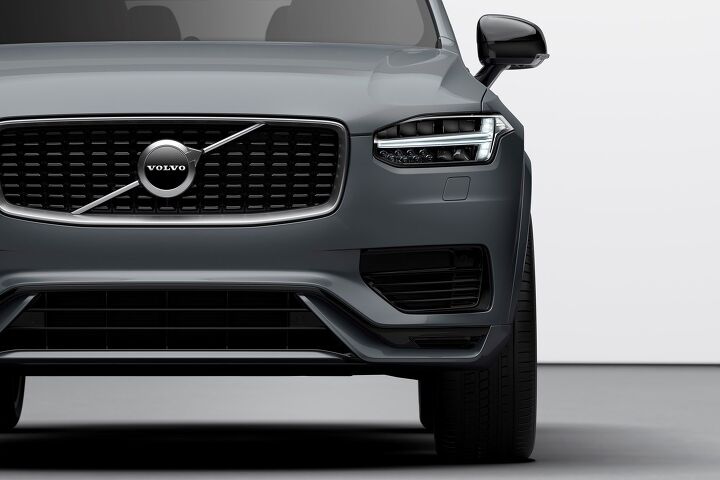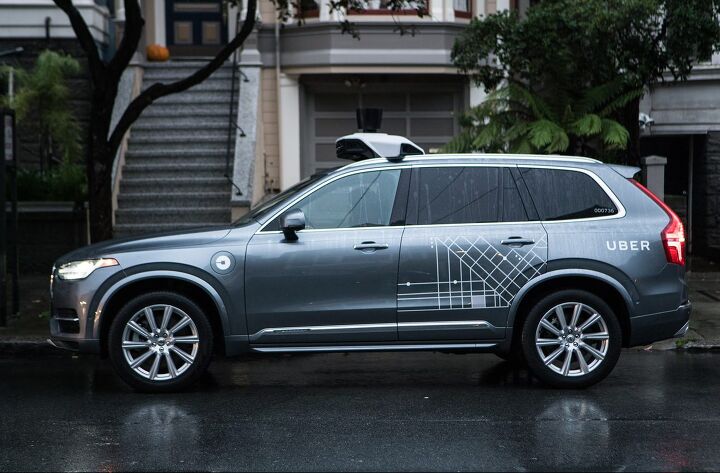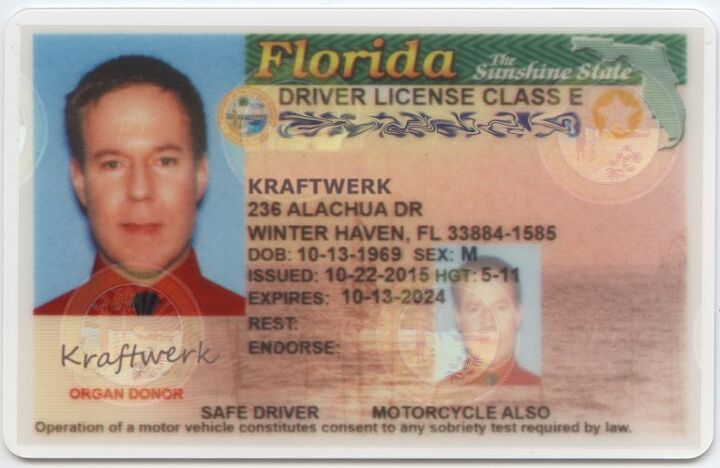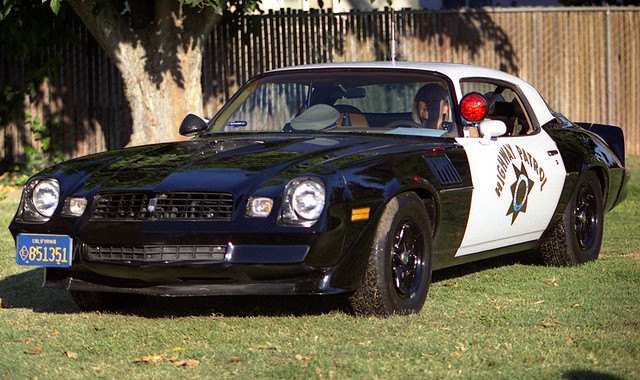#DMV
Georgia Ditches Driver's License Road Tests During Pandemic
With state governments enacting countless changes during the current health crisis, many have risen up to decry the walking back of our civil liberties. Some are absolutely convinced leadership has crossed a line by prohibiting (or criminalizing) rights guaranteed to them by the United States’ founding documents in a time of crisis. Others are just angry because they think the economic ramifications of shutdown orders are screwing things up more than the coronavirus itself.
One group that is assuredly not complaining, however, is Georgian teens.
Extending its state of emergency, Georgia is indefinitely suspending the need for youngsters to pass their road test in order to procure their driver’s license. That’s per one of the many executive orders issued by Gov. Brian Kemp this month. He remains adamant that the state needs to reopen for businesses, but says it has to be done smartly, with some businesses revived while others have to wait. Allowing parents to vouch for children with a learner’s permit is seen as part of the plan.
National Real ID Deadline Delayed Until 2021
On Thursday, Homeland Security Secretary Chad Wolf announced that the Real ID deadline — which had previously been delayed indefinitely due to the coronavirus outbreak — has been pushed back until October 21st, 2021, as directed by President Trump.
Enacted in May of 2005, the Real ID Act was basically Congress over-responding to 9/11 by mandating that state-issued driver’s licenses be updated so they can be used for official purposes by the federal government (as defined by Homeland Security). While the primary goal is to mitigate air travel of undocumented immigrants between states, the aforementioned “official purposes” applies to whatever the federal government thinks prudent on any given day — including barring citizens without the ID from military bases or federal buildings, in addition to air travel.
If you haven’t heard of Real IDs (indicated by a little gold star in the corner), you’re not alone. The issue only gets a smattering of coverage every couple of years; plenty of states spent the period following 2005 pushing back against the plan, delaying its implementation several times via extensions. It was initially supposed to come into effect in four phases starting in 2008, but changes didn’t actually start until 2014. At this point, the nation is at phase three (which restricts access to federal facilities), with phase four applying new rules to U.S. air travel.
Volvo's Subscription Service May Breach California's Franchise Law
It’s no secret that Volvo dealers aren’t keen on the factory subscription plan. Last December, the California New Car Dealers Association even asked the manufacturer to end Care By Volvo on the grounds that it was taking business away from storefronts. The automaker responded by saying the service had proven popular with consumers, attracting new customers to the brand while reassuring dealers that version 2.0 of the subscription plan had been approved by the Volvo Retailer Advisory Board and would give shops more to do.
Rather than take the wait-and-see approach, the California New Car Dealers Association petitioned the state’s New Motor Vehicle Board. Last week, the group unanimously voted to direct the state’s DMV to investigate Care by Volvo and four claims that the service violates provisions of the California vehicle code — potentially leading to disciplinary actions.
How Is Apple's Autonomous Vehicle Program Doing, You Ask?
Back in 2015, it was rumored that Apple was sinking significant resources and manpower into an electric vehicle program that also incorporated autonomous driving. But updates on “Project Titan” have been infrequent. Apple takes pains to keep its self-driving program under wraps.
There are, however, ways to track its progress. Since Apple tests its vehicles in California, it must submit an annual report to the state’s Department of Motor Vehicles outlining how many times human safety drivers retake control or interfere with the vehicle’s self-driving systems, as well as a tally of total miles driven.
Based on this metric alone, Waymo appears to be the industry leader, with “disengagements” occuring every 11,000 miles. General Motors’ Cruise came in second with roughly 5,200 miles between periods of human intervention. But what about Apple? Apparently, the firm is facing some rather strong headwinds. The company claims a human had to retake control every 1.1 miles.
QOTD: The Closest Call You've Ever Had?
In a QOTD post last week, we opened up our memory banks and recalled the days of driver’s ed; the bumpy road we all took to become the car fans we are today. But the dangerous driving moments never end at the learner’s permit or license.
Today we want to know the closest call you’ve ever had.
QOTD: Driving Down Educational Memory Lane?
Each one of you here in the peanut gallery learned to drive at one point or another. And whether that was via a proper driving school, or, perhaps for the older types, at the wheel of a friend or relative’s car, the memories are there just the same. Today we talk driver’s education and the car which withstood your naive mistreatment. It’s story time.
QOTD: The State of a Scarlet Letter?
Last week’s QOTD post about states and their respective license plates generated a few comments about a particular plate issued by the state of Ohio. In today’s question, we dive a little deeper and focus solely on this Ohio plate, which just happens to be more unique than every other license plate in use today.
Does the United States Have the World's Best Drivers? Sure, Just Ask Us
If you ask any terrible motorist how skilled they are behind the wheel, the response is often the same. “Oh, I’m a great driver,” they’ll say with a self-assured smile. Meanwhile, you’re left holding back a series of screaming rants that involve first-hand accounts of why their claim couldn’t possibly be accurate. But what about the rest of the country?
As it turns out, the general consensus in the United States is that most people think they’re a fine driver. But things get a little more complicated when you drive into people’s habits behind the wheel. In a recent survey, Driving-tests.org found that 60.8 percent of surveyed Americans thought they were an above-average driver. While that percentage can only be an impossibility, some of the claimed behaviors were slightly better than a comparative sample of international respondents.
Uber to Meet With California Officials on Wednesday, Possibly Just to Argue
Uber’s and its lawyers are going to meet with California’s Department of Motor Vehicles and the state’s Attorney General on Wednesday afternoon. While none of the parties have comment on the meeting’s purpose, odds are that it will include a lengthy chat about Uber’s self-driving SUVs — which have created a ruckus in San Francisco — and the company’s total unwillingness to apply for autonomous testing permits in California.
Last week, Uber Technologies Inc. royally cheesed off Golden State regulators when it deployed a test fleet of autonomous Volvos without the necessary permits from the DMV, telling the department to mind its own business as safety complaints mounted. Since then, California’s DMV has sent the ride-hailing company a letter threatening legal action if it did not swiftly comply.
Meanwhile, the newest complaint is also the oldest, chronologically.
Uber Informed the California DMV Its Rules Don't Apply to Their Cars
Uber Technologies Inc. have again ignored mandates from California regulators that the ride-services firm must apply for a permit to test self-driving cars, setting the table for a potential legal battle. Uber’s grounds for refusing to apply are that the autonomous vehicles are not quite self-reliant enough to warrant the paperwork.
Unveiled to the public on Wednesday, the company’s self-driving cars faced immediate criticism in San Francisco after news broke that one had breezed through a red light and another almost caused an accident. The general denunciation forced the California Department of Motor Vehicles to notify Uber to cease operations, to which it responded with a frank “no.”
I Am Kraftwerk: How One of TTAC's Own Became a Florida Man Meme
Editor’s Note: Please welcome TTAC commenter Piston Slap Yo Mama, or David Sanborn as his parents call him, above the fold. After a semi-casual trip to Florida’s Department of Motor Vehicles, Mr. Sanborn became Kraftwerk, and this is his inside story.
Choose one: a soul crushing morning at the DMV waiting to renew your driver’s license amid a sea of crying infants or a visit to the ham-fisted death dentist your insurance plan forced on you? Everyone rich or poor inevitably has to do these things, and unless you’re Charles Nelson Reilly, there’s no preferential treatment.
As my fiancée Jennifer and I had just moved to Florida, we had to visit the grey bureaucrats at the DMV within 30 days or risk the ire of the state apparatus.
For Some States, Getting a Driver's Test Means Paying Big
A report by published by the New England Center for Investigative Reporting (NECIR) (via WGBH Boston) details that state’s widening private and public systems for road tests by the Registry of Motor Vehicles.
Prospective drivers may wait hours for an available examiner, or book months in advance — sometimes hundreds of miles away — for their chance at a road test. Or, they could pay hundreds to jump the line, and in some cases, have an examiner come to them.
The story details a growing schism in some places for public tests giving preferential treatment to private businesses because of cash-strapped budgets or over-burdened examiners.
California Offering Legacy License Plates
The California state DMV is offering motorists the chance to step back in time and order new license plates in historic color combinations.
2011: A DMV Odyssey
[Editor’s Note: This piece, by Eric Peters, has been republished from the National Motorist’s Association blog. It originally appeared at epautos.com.]
Big Brother’s doing a bit more than just watching you these days.
Remember the last time you got your driver’s license renewed? You may recall the procedure for taking your picture was a bit different than it used to be.
Instead of the usual “smile” you might have been told to do no such thing — very specifically. To be as expressionless as possible. And that the system seemed more “high-tech” than it used to be. Instead of receiving your new license on-site, it would be mailed to you in a week or so — from some unspecified “secure location,” perhaps.
You may have been told or seen signs or been given literature explaining that the new way of taking your picture is part of new security measures designed to make it harder for people to manufacture fake IDs (since a driver’s license is the de facto national ID in this country).
But they probably didn’t mention that the pictures — digitized images, actually — were to be downloaded into a new database that uses facial recognition software to “scan” for (are you surprised?) Terrorists — among other things.
Only it’s ordinary Americans who are being terrorized.




























Recent Comments